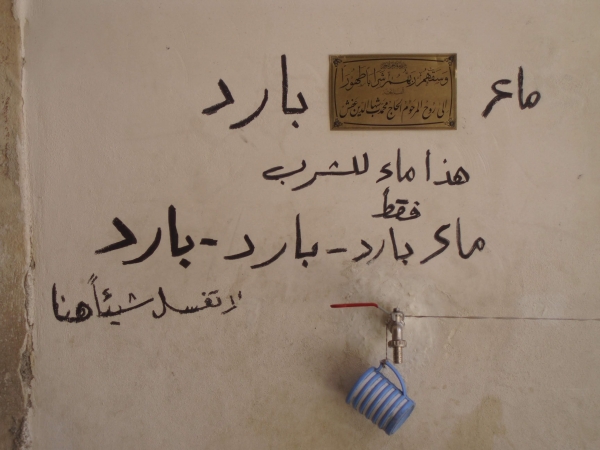This article is a presentation of a report by the International Committee of the Red Cross on water scarcity in Syria as a result of ongoing conflict
Over ten years of fighting in Syria have resulted in the widespread destruction of water facilities across the country, leaving millions struggling to access clean water. Syria now has 40 percent less drinking water than a decade ago, as revealed in the latest report published by the International Committee of the Red Cross (ICRC), and while the triggers for water scarcity are complex, the current water situation in Syria is, in part, a direct consequence of the ongoing conflict.
The ICRC’s report on the situation in Syria found that, before 2010, the year the hostilities began, 98 percent of people in cities and 92 percent of people in rural areas had reliable access to clean water. Today, only 50 percent of water and sanitation systems are functioning. Key infrastructure have been severely damaged by the violence and have further deteriorated due to the lack of maintenance and manpower to keep the systems working properly. All of Syria’s main water systems and drinking water facilities have been seriously affected by the fighting, and the risk of groundwater contamination in the area surrounding the cities of Damascus and Aleppo is dangerously high after a wastewater treatment plant serving the two cities was destroyed as a result of the violence. It is now releasing untreated wastewater into the natural environment, increasing the risk of water-borne diseases and posing serious risks to public health. In Hassakeh Governorate in north-eastern Syria, a region which was severely impacted by the conflict, and which continues to host a great number of internally displaced people (IDPs) and long-term refugees from neighbouring countries, at least 700,000 people are affected by water shortages every day. Power infrastructure was also heavily damaged, causing a 70 percent reduction in power supply. Local systems providing basic services such as access to drinking water, health care and electricity are all interconnected. So, a disruption in power supply inevitably impacts water supply operations, which, in turn, can have severe knock-on effects on the operation of essential infrastructure including health care facilities. The limited availability of clean water also seriously hampers the hygiene measures essential for the prevention and treatment of Covid-19.
In addition to the disruption caused by the war, most-conflict affected areas in the world are also facing the challenges associated with climate change. Syria was, in fact, already experiencing water scarcity before the war broke out, as is the case in many other countries affected by conflict. Studies consistently report on the disproportionate vulnerability of conflict-torn countries to the consequences of climate change and environmental degradation. Tragically, water scarcity often then leads to even greater instability in the country. This summer, the entire region endured the worst drought in 70 years, with rising temperatures and record low levels of rainfall depriving Syria and neighbouring Iraq of drinking and agricultural water. Within the Syrian conflict, access and control of water is often the most valuable commodity available to opposing forces.
In a country confronted with the consequences of a decade of war, the compounded effects of conflict and environmental degradation are stretching humanitarian resources thin. Several international organisations and aid groups have voiced their concern over the unfolding water crisis, warning that the total collapse of water and food production is imminent and will push more people into displacement. The ICRC is urgently calling for countries to come together to find practical solutions to avoid a humanitarian catastrophe.
To read more, visit:
https://www.icrc.org/en/document/syria-water-crisis-after-10-years-war
Author: Giulia Ferrara; Editor: Xavier Atkins







